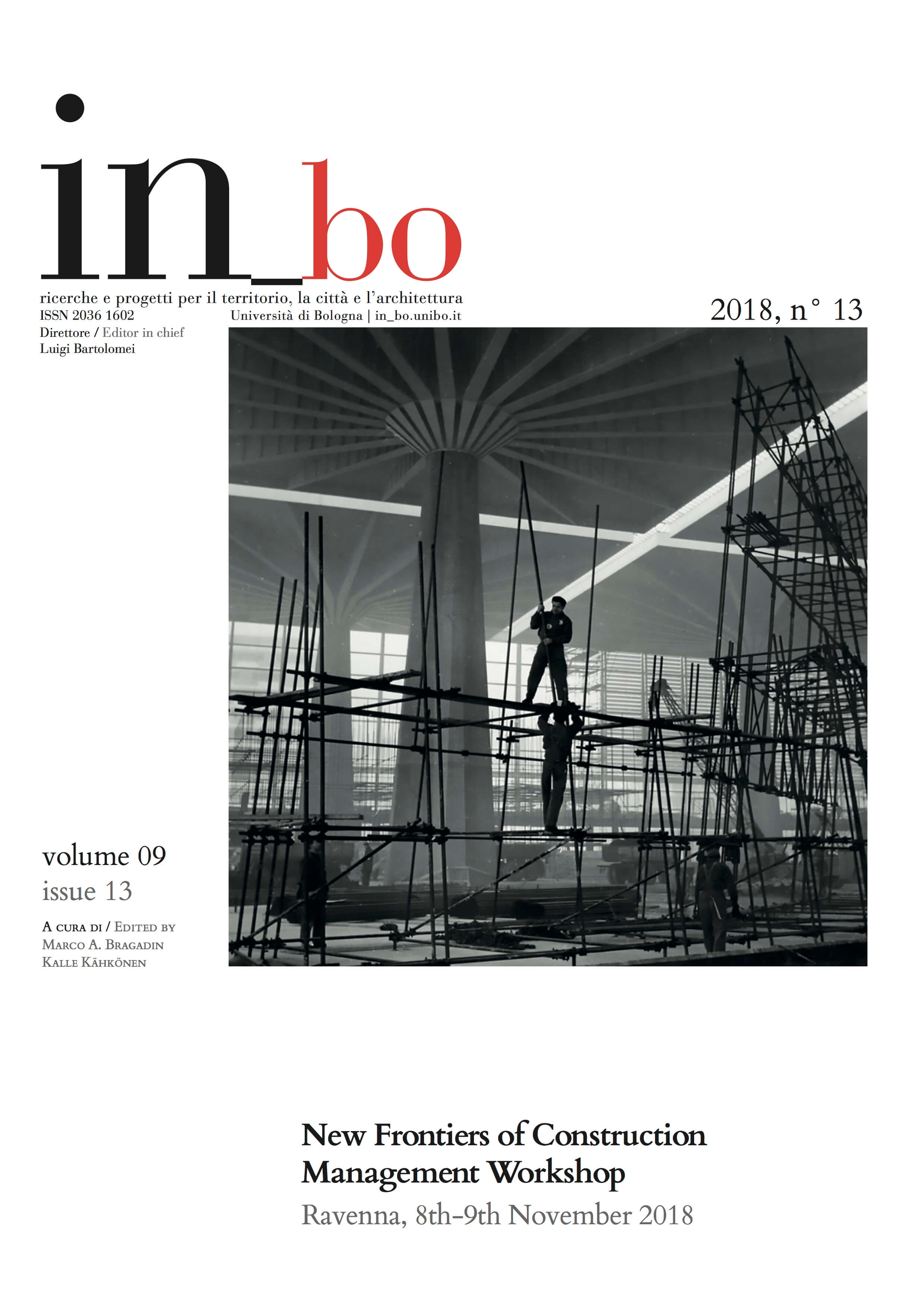Framework Agreement and Collaborative Procurement in Italian Legislation Enhancing a BIM Approach
DOI:
https://doi.org/10.6092/issn.2036-1602/8831Keywords:
Collaboration, Multiparty, Relational Contracts, Legal BIM, AllianceAbstract
The research proposes an overview of the importation of a Relational Project Delivery Agreements (RPDAs) procurement in Italian legislation and the related issues. The AEC sector fragmentation, caused by an increase of building complexity and a change in the industry structure, is demanding a collaborative approach to the project to allow the possibility of a holistic vision based on a BIM approach. This work provides an overview of RPDAs applications on different contexts, highlighting benefits and issues related, including litigation resolution processes. A special focus has been kept on Italian context, where the stagnant construction market needs to be revolutionized, and better interactions among stakeholders are required. The research imports and adapts a collaborative procurement model, FAC-1 (Framework Alliance Contract), on Italian framework, tailoring the most important features of the model to the Italian legislation. The goal of this work is providing a methodology to validate a standard form of contract, aiming at an added value to construction sector and at applying them to framework agreements. Further developments consist in guidelines for contract management and evaluation of the project behaviour during different phases of the process.
Downloads
Published
How to Cite
Issue
Section
License
Copyright (c) 2018 Gian Luigi Albano, Giuseppe M. Di Giuda
Copyrights and publishing rights of all the texts on this journal belong to the respective authors without restrictions.
This journal is licensed under a Creative Commons Attribution-NonCommercial 4.0 International License (full legal code).
See also our Open Access Policy.
Metadata
All the metadata of the published material is released in the public domain and may be used by anyone free of charge. This includes references.
Metadata — including references — may be re-used in any medium without prior permission for both not-for-profit and for-profit purposes. We kindly ask users to provide a link to the original metadata record.







